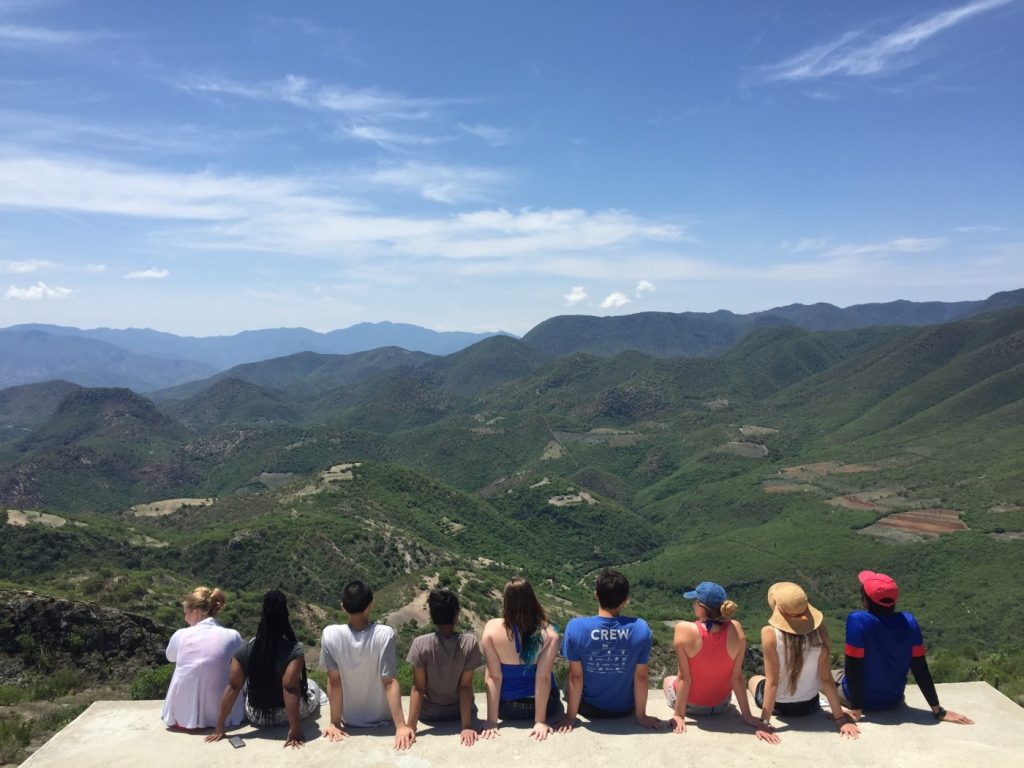
Last year, Dr. Anita Gonzalez received an invitation from Georgetown University to become the co-chair for a soon-to-be-established Racial Justice Institute. At the time, the Experiment alumna and University of Michigan theatre professor wasn’t sure what that might mean.
Even though the Racial Justice Institute was announced following the murder of African American George Floyd, Jr. by a Minneapolis police officer, it was not created in response to that tragic event. The institute, in development since February 2016, reflected Georgetown University’s commitment to build upon its public acknowledgment of the sale of 272 enslaved people in 1838 by forming an academic institute that would address persistent issues of racial injustice and structural inequality throughout society.

Experiment alumna Anita Gonzalez
As Gonzalez learned more about the Racial Justice Institute (RJI), she found the possibilities exciting. But it wasn’t immediately clear to her why she, as a scholar of performing arts, was approached to lead it. The other two scholars were prominent in the fields of U.S. health and law.
“If you had asked me a year ago if I thought my work was about racial justice, I would have thought, maybe, but I’m committed to making theatrical art,” she says.
Gonzalez has more than 20 years of experience developing programming and curricula in higher education that promotes internationalism in the arts, engaged learning, and interdisciplinary research. She describes her eight-week Experiment program in Mexico as a formative experience that shaped her academic, professional, and overall life path.
As she thought about the institute’s broad mandate for racial justice, she realized how her previous work focused on international exchange and activism. She accepted the position in July 2021, and moved to Washington, DC, to begin strategizing with her co-chairs.
“Theatre as Cultural Exchange”
“The Experiment in International Living changed entirely how I think about international engagement. It changed my life,” says Gonzalez, who now serves in the Performing Arts and African American studies departments at Georgetown College. As an Experimenter at age 16, she learned many of the lessons she carries with her today and teaches when she travels with students to Mexico.

“I was deeply engaged. I was immersed. With the Experiment, it was more than going for a week and seeing the sites,” she says.
Gonzalez, who is of Afro-Cuban heritage, refers to her work as promoting “theatre for cultural exchange.”
Her historical and cross-cultural productions have appeared on PBS, at Lincoln Center Out of Doors, and Puerto Rican Traveling Theatre. In addition, she has led cultural exchanges in Ethiopia, South Africa, Mexico, and the United Kingdom.
Gonzalez says it all began with her father, who wanted his children to have an international experience at a young age. “My father felt like The Experiment was the best program for us,” she says. “It was as influential as he hoped it would be.” Both my brother and I participated.
The Experiment was exciting for Gonzalez, and she found the staff supportive. For example, when she became ill in Mexico, her group leader was there to help her. She fondly recalls how her homestay family showed her all aspects of family and community life. It was a richly immersive experience.
She was hooked.
“With roots in The Experiment, I’ve been able to create relationships with families that have been ongoing to this very day — the relationship extends to the children and grandchildren,” she says.
Before her graduate studies, Gonzalez received three Fulbright fellowships in Mexico, Honduras, and Guatemala, where she worked with local choreographers on archival research and collaborated with dance and theatre companies.
The shape and focus of the Racial Justice Institute is still developing. Gonzalez and her co-founders are interested in creating a framework for advocacy and community engagement. They envision “activating pods of knowledge” throughout the university, not just highlighting problems but also promoting wellness.
Gonzalez now clearly sees where she fits into that dialogue and what she brings to the institute and Georgetown at large. She teaches on the undergraduate level and focuses on international projects.
She’s excited that the university has an established global theatre arts program and sees performing arts training as much more than preparing students for careers in entertainment.
People get much of their information through art, like documentaries, television, and fictional stories in the movies and on stage. “I’ve always seen the arts in terms of their communicative powers,” says Gonzalez. They are the public face of social change. … Art is extremely important to how people conceptualize race.”
From her experience in Mexico and other countries, she sees how communities fighting for racial justice use the arts to humanize their experiences and tell stories of their struggle and resilience, creating understanding and empathy for their cause.
“My own personal artistic process is to take people’s stories and make them public,” she says.
“For me — because of The Experiment — the arts have always been about bringing communities together to make collaborative work.”


